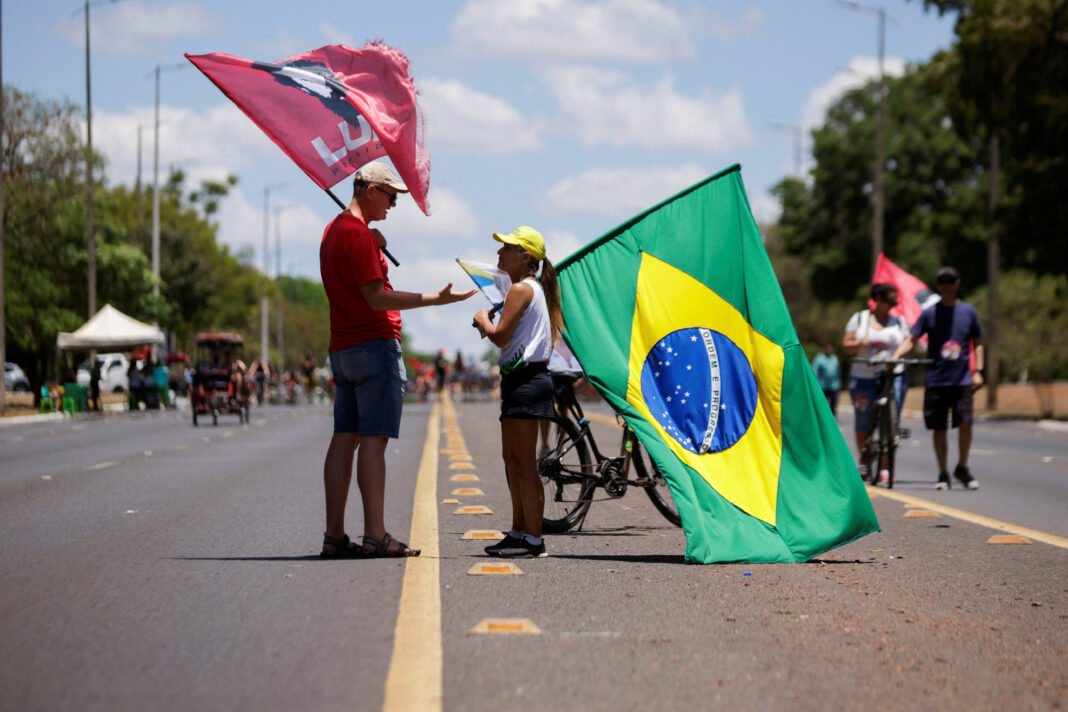The institutional breakdown could hamper the possibility of Brazil to cooperate internationally with the region and beyond on key areas such as climate change, trade security and democracy-building
Inserted in a complicated international and regional context, the elections of Brazil, Latin America’s most populous country, assume an even greater importance. The phenomenon of democratic erosion is now well established at a global level, but particularly in Latin America according to the main relevant indexes on democracy such as that of Economist and International IDEA. In facts, only 2% of the region’s population live in a “full democracy”, that of Costa Rica and Uruguay, while the rest has to deal with the consequences of living under “flawed democracies” that don’t fully guarantee political and civil rights.
Furthermore, an inflation process that started after the war in Ukraine has now spread to every country in the region. In these circumstances, the fate of Brazil and the influence it exerts on the other Latin American states is even more under scrutiny. A possible institutional breakdown might be on the horizon, as underlined by Brian Winter of Americas Quarterly, and this is no good news for Brazil’s democratic institutions and for the region as a whole.
Bolsonaro’s inactivity
Brazil has a long and important diplomatic tradition that in the past has positioned the country as an undiscussed regional leader. This is paired with long-standing foreign policy ambitions such as that of obtaining a permanent seat in the Security Council of the United Nations or with the tradition of speaking first at the yearly UN General Assembly in New York, which recently took place. The last UNGA provides a perfect example of Bolsonaro’s disinterest in external affairs and incapacity to forge a clear and established foreign policy path. His speech, in fact, was directed almost exclusively to a domestic public, given that the elections were the main topic discussed and the way he instrumentalized his position of power from the UN podium to mobilize internal consensus.
Regional politics
Concerning regional politics, things don’t differ much. Bolsonaro has had his hands full with domestic challenges such as maintaining firm his support from the agro-businesses elites or the evangelic churches and passing pieces of legislation like the signing of a decree that eases gun ownership rules. The consequences of the pandemic and the internal accusations he faces following his disastrous mishandling of the pandemic, which led to 687k deaths so far, contributed to making domestic policy a priority over foreign affairs. Poor coordination with the rest of regional leaders on vaccine distribution (not exclusively Bolsonaro’s fault, but more a sign of the deep crisis of Latin American regionalism) and the absence of regional dialogue are further elements to add to the discussion. In the case of Bolsonaro, his silence on Uruguay’s study of impact of a trade agreement with China that would potentially jeopardize the stability of MERCOSUR is striking.
Bolsonaro and the US, from Trump to Biden
The bilateral relation between the US and Brazil has rarely been so frosty as it is lately. The personal appreciation that Bolsonaro had for Trump, and vice-versa, were the key to a cordial relation between the two presidents that was based on leaving each other’s alone. With the election of Biden, the state of the relation was reversed. “I strongly endorse Bolsonaro, so go out and vote for him” was the endorsement that Donald Trump directed to all the Brazilians on Oct 2nd, after having previously declared that “Bolsonaro has done a great job for the wonderful people of Brazil”.
On the other hand, Bolsonaro was one of the last heads of state, together with López Obrador of Mexico and Putin of Russia, to recognize the election of Biden as a president of the US with more than a month of delay. From then on, the relationship has been rather conflictual. At the IX Summit of the Americas held last June in Los Angeles, Bolsonaro finally decided to attend, but only after months of uncertainty and the real possibility for him to join the club of boycotting countries that didn’t participate in the hemispheric meeting. On the sidelines of the event, the first and only bilateral meeting between Bolsonaro and Biden was held, but no meaningful initiative of cooperation was launched.
To further complicate the situation, Bolsonaro travelled to Russia in February just before the start of the war in Ukraine. There, he declared “we are in solidarity with Russia. We very much want to collaborate in many areas — defence, oil and gas, agriculture” and that Putin is a “person that strives for peace”. This is a clear obstacle for the bilateral relation with the US and adds up to a lack of common interests that could be the base for a meaningful cooperation given the huge unexploited potential of the diplomatic channels already established between the two countries in areas such as trade, the environment and security.
Brazil and the EU: the state of the strategic partnership and the war
Beyond regional borders, another interesting aspect to point out is the state of the relations between the European Union and Brazil, defined as a “strategic partnership” from 2007. Arguably the biggest success of Bolsonaro’s foreign policy has taken place in this field, with the signing in 2019 of the EU-Mercosur agreement. The signing, and not yet ratification, of this agreement was a huge step in a long process that started more than 25 years ago. The predecessor of Bolsonaro, Michel Temer, had already re-vitalized the agreement that had been stalling for a while, but the final key momentum for the signing of the agreement was provided for by Ernesto Araújo, Brazil’s former foreign minister. Despite this accomplishment, the relation with the EU has generally been conflictual, once again given Bolsonaro’s ties with Putin and his limited availability to cooperate on deforestation and climate change.
A problematic election
On October 30th, all the eyes will be pointed on Brazil, from Latin America but also from the rest of the world. Whoever wins, the main risk is that of an institutional breakdown that could degenerate in limited street violence and would further hamper the possibility of Brazil to cooperate internationally with the region and beyond on key areas such as climate change, trade security and democracy-building.





